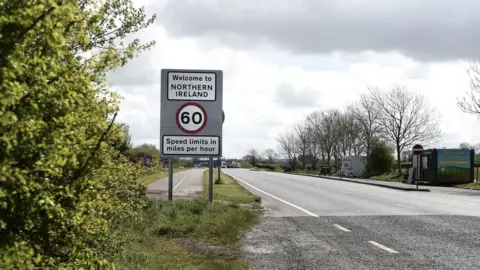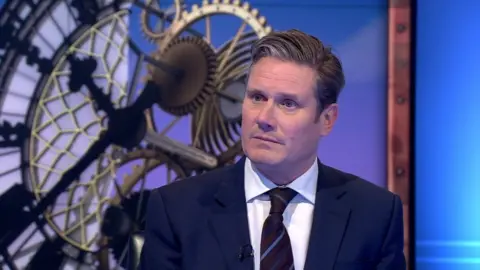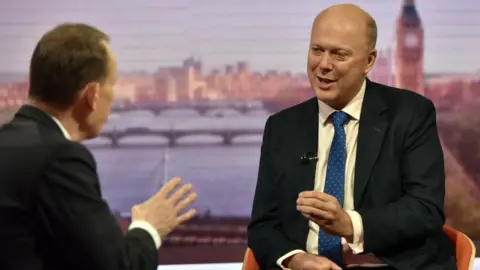No Brexit deal will bring hard Irish border, Starmer says
 Getty Images
Getty ImagesA failure to reach a deal in the Brexit talks would inevitably lead to a so-called hard Irish border, according to Sir Keir Starmer.
The Labour Party's shadow Brexit secretary said a no-deal scenario would be "catastrophic" for Ireland.
The UK has until March 2019 - the date when it is due to leave the EU - to agree a deal on the withdrawal terms.
The government has said it wants an agreement but acknowledges that it must prepare for all eventualities.

Sir Keir said his party would not endorse a no-deal outcome in a vote in the House of Commons and warned the government against it.
"If there's no deal there is no agreement as to what will happen on the border in Northern Ireland.
"That means it is inevitable you will have a hard border.
"If there's no agreement, no deal, that means there's no deal on EU citizens in this country or UK citizens abroad.
"There's no way we would vote for no deal - that would be catastrophic."
'Sensible future partnership'
Northern Ireland is the only part of the UK that will share a land border with an EU state after Brexit.
How the border will be managed is a highly sensitive issue and is a top priority in the negotiations between the UK and the EU.

The government said in August that there would need to be an "unprecedented solution" for the Irish border.
The EU has agreed that there should not be any border posts, but it has said that substantial work needs to be done to achieve that outcome.
Transport Secretary Chris Grayling said he is confident of a "sensible deal, a sensible partnership for the future".
"Nobody has any intention whatsoever of changing the situation that has existed since 1923 of people moving freely from Northern Ireland to southern Ireland and vice versa," he added.
"That's simply not going to change."
Mr Grayling also said that trade across the Irish border could continue without customs posts.
"In today's world, you can manage trade across borders freely, electronically without creating the kind of hard border that people imagine."
